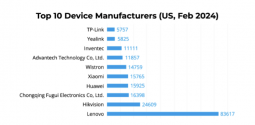That is a lot of word salad based on wrong assumptions. The presumption is not US companies having the largest market shares. The US hasn't competitive in automotive (you know, a little significant industry) for 30 years. Boeing is being outcompeted by Airbus and aerospace had been the crown jewel of American technological capabilities before that. When you actually think about this, you keep reaching major examples. The said presumption just exists in your head.The fact that areas where China dominates aren’t the norm and need to be individually spelled out ends up proving the case. Otherwise, the presumption is that U.S. firms have the largest market shares and presence in any given sector. Chinas growth is catch-up growth (hence the slowdown in recent years) and thus can be expected to be faster than the U.S. for a fairly long period of time. Just diminishing returns to capital. As for the U.S. pushing the technological frontier - pretty topical that say, the U.S. was first to market with mRNA vaccines or LLMs and Nvidia GPUs are the talk of the town or U.S. oilfield/fracking technologies causing US oil production to increase substantially or U.S. cloud service providers having a near global monopoly, among countless others.
China's growth isn't explainable by catch-up either. Otherwise, it wouldn't still have a productivity growth above the developing world's average. Regardless of what think tankers write, what happened in China and South Korea before that was special. Look nowhere further than China's southwestern neighbor with similar population. They exited WW2 in a much better condition yet they currently are in a far worse state. Their growth and technological capabilities are also significantly weaker than what China had when it had the said neighbor's current GDPpc.
Note: Fracking is banned or severely restricted in most of the world. It has far less future use than renewables related tech which China leads in.




